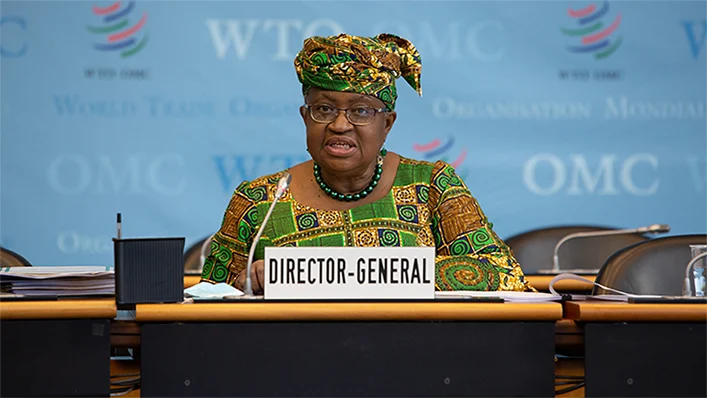Director-General of the World Trade Organization (WTO), Dr. Ngozi Okonjo-Iweala, has raised alarm over newly imposed U.S. tariffs, warning they could significantly undermine global trade and economic growth.
This follows an April 2 announcement by U.S. President Donald Trump introducing sweeping global tariffs on all imports, including a 14 percent tariff on goods from Nigeria.
In a statement issued on Friday, Okonjo-Iweala said the WTO is closely monitoring the evolving situation, and is actively engaging with member countries to assess and mitigate the potential economic fall out.
“The recent announcements will have substantial implications for global trade and economic growth prospects.
“Our initial estimates suggest that these measures, coupled with those introduced since the beginning of the year, could lead to an overall contraction of around one percent in global merchandise trade volumes this year — a downward revision of nearly four percentage points from previous projections,” Okonjo-Iweala said.
The WTO chief also warned about the risk of mounting trade tensions, with countries potentially retaliating with their own tariffs, leading to a spiral of restrictions and further decline in trade flows.
“Many WTO member nations have already expressed concern about the U.S. decision, and the organization is working to address these issues collaboratively,” she noted.
Read Also: US Rapper Ja Rule commissions multi-million dollar school project in Ghana
Despite the recent protectionist moves, Okonjo-Iweala highlighted that a large portion of international trade still takes place under WTO’s most-favoured-nation terms — although this share has declined in recent months.
“It is important to remember that, despite these new measures, the vast majority of global trade still flows under the WTO’s most-favoured-nation terms.
“Our estimates now indicate that this share currently stands at 74 percent, down from around 80 percent at the beginning of the year,” the WTO chief said.
She urged WTO member nations to act responsibly and engage in dialogue to avoid worsening trade conflicts.
“The WTO was established to serve precisely in moments like this — as a platform for dialogue, to prevent trade conflicts from escalating, and to support an open and predictable trading environment,” Okonjo-Iweala added.






